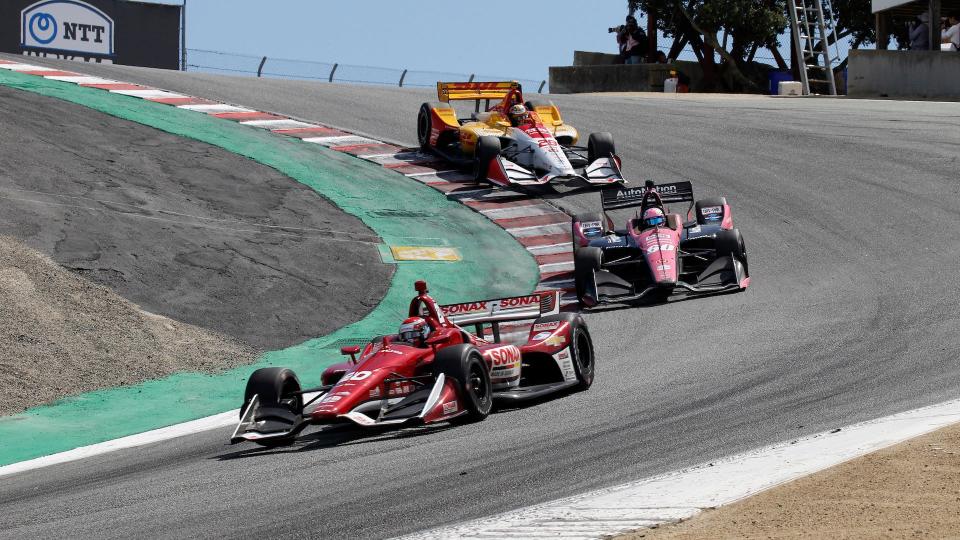Laguna Seca Sued by Rich Neighbors for Being a Race Track

Laguna Seca is the foremost example of a racetrack choked by suburban sprawl. Though the circuit dates back to 1957, the once-secluded track has been hemmed in by noise limits and calendar limitations enacted at the request of local property owners. Now, the complainers are going for the throat by suing to end racing entirely, which might put the track's future in jeopardy.
The track's operations are the subject of a legal complaint filed December 12 with Monterey County by the "Highway 68 Coalition," a group of nearby property owners and residents. The group and its legal representation pull out all the stops to assault Laguna Seca's legality, arguing it doesn't abide by environmental ordnances, that racing isn't allowed by zoning laws or the land use permit, and so on. They claim the circuit is "a public nuisance and has caused and will continue to cause irreparable injury not subject to money damages."

Laguna Seca already operates with strict limitations imposed by local authorities. The track disallows cars that are too loud (held to be more than 90 to 105 decibels), and as of a 1983 deal was limited to just 35 event days annually—24 of which were for 5,000 people or fewer. Because of the circuit's complicated history and legal status, it has effectively been grandfathered in as exempt to some local zoning and environmental laws. The niceties of these laws however are being plied by the plaintiffs to try to shut down racing.
Some of the track's operations are accommodated under language that allows the track to continue its "past history" of activity, with that period being defined as that occurring within the last three years. The plaintiffs use this to frame the track's bounce-back from the events of 2020 as a sharp increase in racing activity between 2021 and 2023. They also allege motorsport and similar events like track rentals "substantially increased compared to similar operations from 1974 until 2021," and that the track is still bound to restrictions enacted in 1985. (A new land use permit redrew those boundaries in 2023.)
Of course, the plaintiffs don't want fewer races, they want them gone entirely. They assert that said land use permit and zoning laws only allow non-racing track use, and that renting out the track (in what capacity the plaintiffs didn't define) is forbidden. They seek to have all legacy protections stripped if the track is found to have a negative environmental impact, which they claim to be self-evident.
The plaintiffs alleged "the number of residences and residents adversely affected by the increased noise and traffic has substantially increased since 1974." Supposedly, the track has generated more noise despite the limited calendar, and has inadequate facilities. (The track is on county-owned land.) The track purportedly has inadequate sewage facilities and water supplies, which the plaintiffs purport contain high levels of arsenic. No numbers to back up any of these claims are provided in the document.

However, the plaintiffs don't complain about a gun range situated closer than the track to the nearest development: A subdivision surrounding a country club, The Club at Pasadera. Said club opened only in 2000 as a master-planned gated community, and advertises real estate on its website. The second-closest development is also a suburban neighborhood, built around a country club opened after the track's construction.
While it's unclear which interests the Highway 68 Coalition truly represents, it's clear those with the most at stake—aside from motorsports fans—are moneyed interests directly adjacent to the track. Whether they're trying to sue their way into some quiet or imagine a payday on the horizon, the lesson is clear. Don't buy a house at a racetrack if you don't want to hear the cars, and definitely don't make it other people's problem if you do.
Got a tip or question for the author? You can reach them here: james@thedrive.com

 Yahoo Autos
Yahoo Autos 